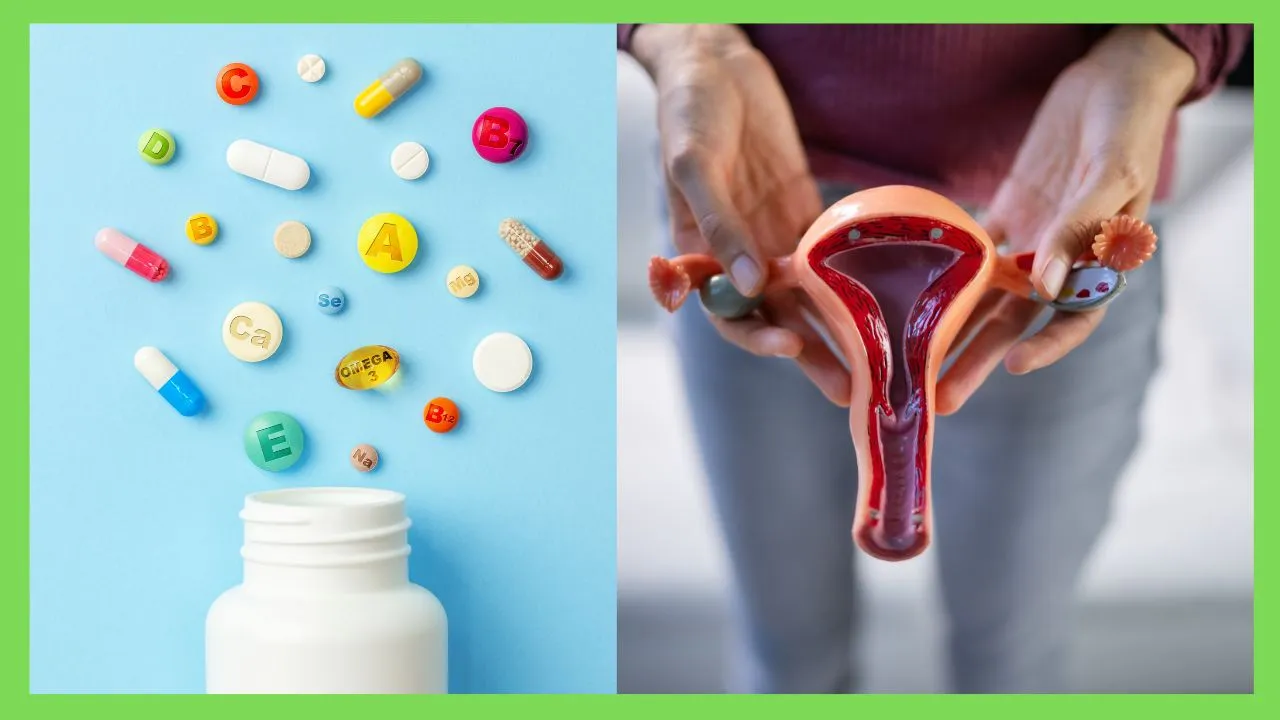Table of Contents
Several vitamins and supplements can support vaginal health by promoting a balanced pH and preventing infections. Here are some key options:
Key Vitamins and Supplements
- Vitamin C
- Benefits: Helps lower vaginal pH and may prevent bacterial vaginosis when used as vaginal tablets or suppositories.
- Research: A clinical trial indicated its effectiveness in women prone to bacterial infections.
- Probiotics
- Benefits: Contain beneficial bacteria that help maintain a healthy vaginal microbiome, producing lactic acid and hydrogen peroxide to support a low pH and reduce the risk of infections like bacterial vaginosis and yeast infections.
- D-mannose
- Benefits: A type of sugar that can help prevent urinary tract infections (UTIs) by preventing harmful bacteria from adhering to the urinary tract walls. It is naturally found in fruits like blueberries.
- Garlic Supplements
- Benefits: Known for its antibacterial and antifungal properties, garlic can help alleviate symptoms of vaginal infections.
- Cranberry Supplements
- Benefits: Their acidic nature may help maintain healthy vaginal pH levels and flush out UTI-causing bacteria due to compounds called proanthocyanidins.
- Vitamin D
- Benefits: May be useful in certain vaginal health conditions, particularly in supporting overall immune function.
- Vitamin E
- Benefits: A fat-soluble vitamin that can help with vaginal dryness and may support overall vaginal health.
- Apple Cider Vinegar (ACV)
- Benefits: While not recommended for vaginal use, ACV has antifungal and antibacterial properties when ingested and may support overall health.
Considerations
When considering supplements for vaginal health, it’s crucial to consult with a healthcare provider to ensure safety and effectiveness, especially regarding potential interactions with other medications. Additionally, choosing reputable brands that provide clear information about their ingredients can enhance the benefits of these supplements.
To maintain vaginal pH balance, several vitamins and supplements are particularly beneficial. Here are some of the best options:
Key Vitamins for Vaginal pH Balance
- Vitamin C
- Role: Vitamin C can help lower vaginal pH when used as vaginal tablets or suppositories. It has been shown to be effective in preventing bacterial vaginosis in women prone to this condition.
- Probiotics
- Role: Probiotics containing strains of Lactobacillus are essential for maintaining a healthy vaginal microbiome. They produce lactic acid and hydrogen peroxide, which help keep the vaginal environment acidic and reduce the risk of infections.
- Vitamin D
- Role: While more research is needed, Vitamin D is suggested to play a role in overall vaginal health and may contribute to maintaining pH balance.
- Vitamin E
- Role: This vitamin can help with vaginal dryness and may support overall vaginal health, contributing indirectly to pH balance.
- D-mannose
- Role: This sugar can support urinary tract health and may help maintain vaginal pH balance by preventing harmful bacteria from adhering to the urinary tract and vaginal walls.
- Cranberry Supplements
- Role: Cranberries are naturally acidic and can help maintain a healthy vaginal pH. They contain proanthocyanidins, which may help prevent urinary tract infections.
- Garlic Supplements
- Role: Known for its antifungal and antibacterial properties, garlic can help combat infections that may disrupt vaginal pH.
Conclusion
Incorporating these vitamins and supplements into your routine can help maintain a healthy vaginal pH balance. However, it is advisable to consult with a healthcare provider before starting any new supplement regimen, especially if you have existing health conditions or are taking other medications.
Probiotics can offer several benefits for vaginal health by helping to maintain a balanced vaginal microbiome. Here are the key advantages:
1. Restoration of Healthy Bacteria
Probiotics, particularly strains like Lactobacillus, are essential for maintaining a healthy vaginal environment. They help restore the balance of good bacteria, which can be disrupted by factors such as antibiotic use, hormonal changes, or infections. This restoration can prevent conditions like bacterial vaginosis (BV) and yeast infections, which are often caused by an overgrowth of harmful bacteria or fungi.
2. Maintenance of Vaginal pH
The presence of Lactobacillus species in the vagina produces lactic acid, which helps maintain an acidic pH. A lower pH discourages the growth of pathogenic bacteria, thereby reducing the risk of infections.
3. Prevention of Infections
Research suggests that probiotics may help prevent recurrent BV and yeast infections. By increasing the population of beneficial bacteria, probiotics can inhibit the growth of harmful microorganisms that cause these infections.
4. Immune Support
Probiotics may enhance local immunity in the vaginal area. A healthy vaginal microbiome can improve the body’s natural defenses against infections, contributing to overall reproductive health.
5. Potential Relief from Symptoms
For individuals suffering from conditions like vulvovaginitis or those experiencing discomfort due to imbalances, probiotics may provide symptom relief. They can help alleviate issues such as itching, discharge, and odor associated with infections.
6. Support During Antibiotic Use
Antibiotics can disrupt the natural balance of bacteria in the vagina. Probiotics may help mitigate some of the negative effects of antibiotics by replenishing beneficial bacteria, thus reducing the likelihood of developing secondary infections.
Conclusion
While the benefits of probiotics for vaginal health are promising, it is important to consult with a healthcare provider before starting any probiotic regimen. The effectiveness of probiotics can vary, and ongoing research is needed to fully understand their role in vaginal health management.

